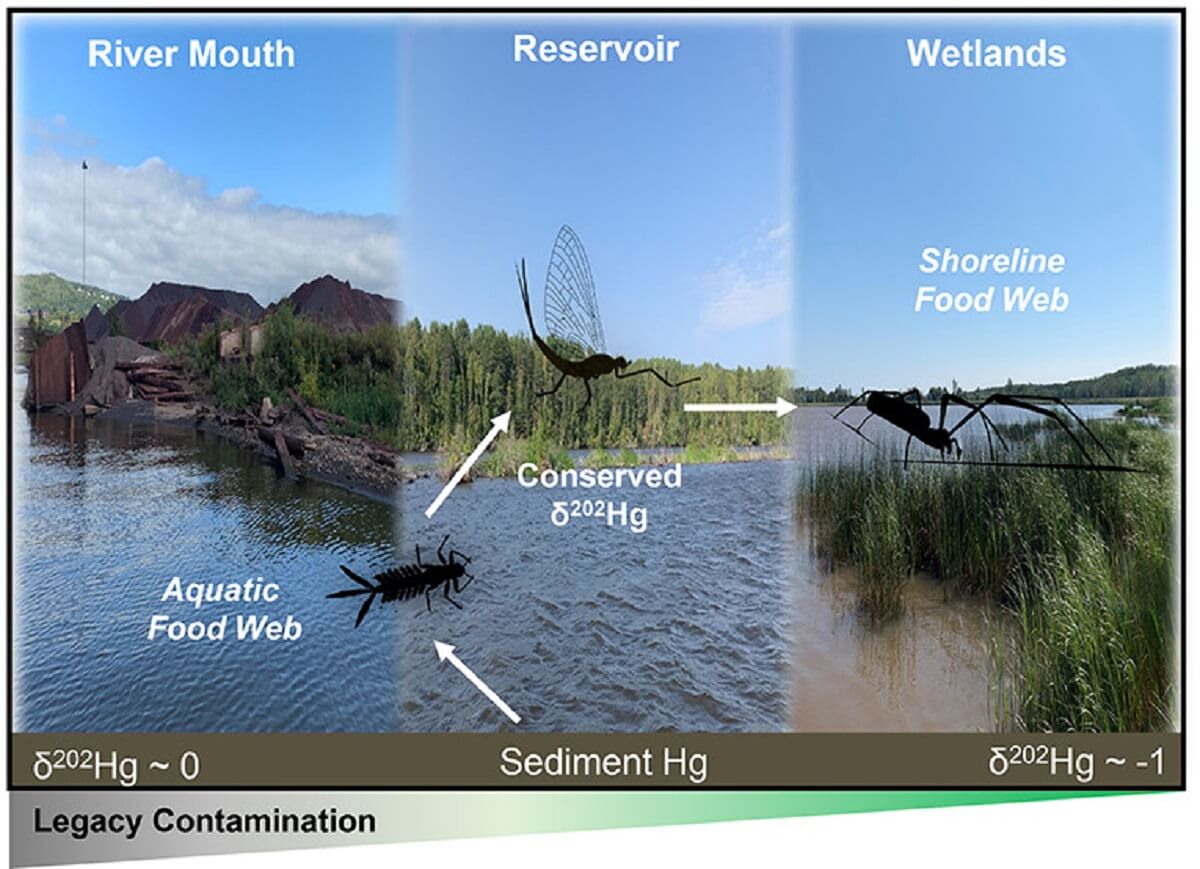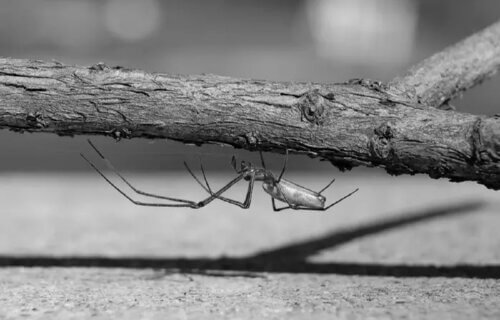MADISON, Wis. — Spiders living near lakes and rivers could be the hidden culprits transferring mercury pollution from water to land, a new study warns.
Mercury is a harmful metal that can enter waterways through industrial pollution and other human activities. It can also come from natural sources. When ingested, mercury can cause digestive issues and even severe kidney or brain damage in animals. Once it enters the water, bacteria quickly convert mercury into its most toxic form, methylmercury. This form of mercury becomes increasingly concentrated as it moves up the food chain.
The study, conducted by researchers with the American Chemical Society (ACS), focuses on spiders that live close to lakes and rivers and eat aquatic insects like dragonflies. These predators eat insects from the water and can later become prey for land animals such as birds, bats, and amphibians.

The researchers conclude that long-jawed spiders could explain how mercury pollution moves from water environments to wildlife on land. This information could be crucial in developing tools to monitor remediation activities.
However, not all species of spiders were found to be carriers for transferring mercury up the food chain. The study suggests that while some spider species can be a conduit for mercury contamination, others may not play such a role.
The research is published in the journal Environmental Science & Technology Letters.
Eating fish ‘safely’ may depend on the season
Unlike spiders, fish have a well-known association with mercury poisoning. By studying fish in a Finnish lake, scientists in a previous study say they now have a better idea of when fish are carrying high or low levels of mercury. Based on those findings, their study reveals that your best bet is to eat more fish in the fall.
Lakes in Finland cycle through periods of warm open water and cold ice-covered seasons, making it an ideal simulation of fish in different seasons. Mercury concentration was significantly higher in the winter among some fish. The start of warmer months in summer and autumn (when fish start mating) produced the lowest mercury levels in fish.
You might also be interested in:
- Something’s fishy: Many college students eating too much tuna, unaware of mercury risks
- Cannabis farms with heavy metals in soil could be creating toxic marijuana products
South West News Service writer James Gamble contributed to this report.


The Poodle is a great herder. Not presented enough